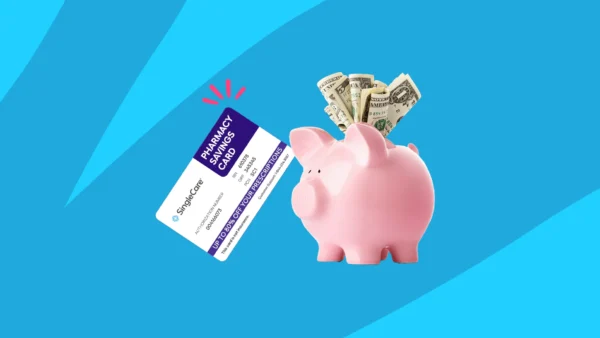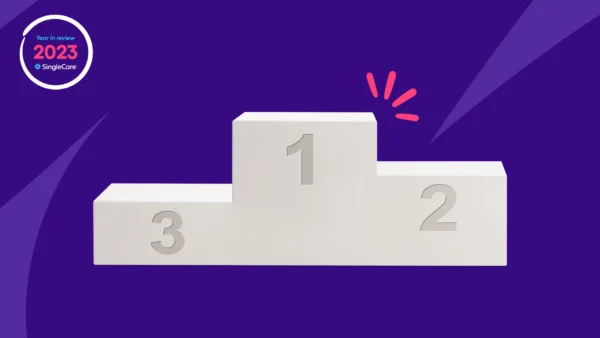You’ve ditched corporate America and decided to be your own boss. Congratulations! You’re part of a growing army of self-employed workers.
According to the Internal Revenue Service, a person in business for themselves and who contracts their services out to other companies is considered self-employed. You might also hear a self-employed person referred to as a freelancer or independent contractor.
Roughly 9.6 million workers in the United States are self-employed, according to the Bureau of Labor Statistics. And the numbers are only expected to increase, with an estimated 103 million Americans counting themselves as self-employed by 2026. That’s a 7.9% increase.
Self-employment means that an employer doesn’t supply company perks, such as health insurance. Choosing the best alternative insurance source can get complicated.
What are the best self-employed health insurance options?
The benefits and perks you may have enjoyed with a company job are not provided to you in a package deal when you’re self-employed. You and your family members will have to fend for yourselves to find health insurance. Consider the following options when deciding what healthcare coverage is best for you:
Common health insurance options
State or federal marketplace
You may be eligible to enroll in an insurance plan through the Health Insurance Marketplace (also called the Affordable Care Act or Obamacare) if you’re an independent contractor, consultant, freelancer, or other type of independent worker. There are several categories of health insurance coverage to choose from, some with plans containing low premiums. Open enrollment is Nov. 1 through Jan. 15; however, you can get insurance outside those dates if you have a special circumstance—for example, you lost your job. You can visit healthcare.gov to learn more about your options through the federal marketplace.
Medicaid
Millions of Americans are provided with low-cost or free coverage through Medicaid. You can be self-employed and be eligible for Medicaid if your household falls below a certain income level (that varies somewhat by state, though the federal government sets minimum standards) and if you meet certain other eligibility criteria. There is no Open Enrollment Period for Medicaid, so you can apply at any time. Visit your local or state department of social services to learn more about coverage under Medicaid and to see whether you are eligible.
Medicare
If you are 65 and older, you may be eligible for Medicare benefits. You also may meet criteria for Medicare if you have been on Social Security Disability (SSD) for two years, or if you have ALS (Lou Gehrig’s Disease) or have End Stage Renal Disease (ESRD).
Employer plan through a family member
If your spouse or partner is employed, check out what it may cost to get on that company’s health insurance plan. Even if you’re not legally married, you may qualify. Some employers offer domestic partnership health coverage to those in a domestic partnership. If you and your partner (including same-sex couples) share a home and live a domestic life together, you may be eligible, as long as neither of you are married to anyone else. Be aware, though, that if your partner’s employer does pay part of your health insurance premium, you may have to pay taxes on it. In addition, some companies are eliminating this kind of coverage. You’ll have the most success if your partner works for a large company. According to the International Foundation of Employee Benefit Plans, over 75% of companies with 10,000 or more employees are likely to continue to offer healthcare benefits to same- and opposite-sex domestic partners.
Additionally, if you are under 26, you could be covered under a parent’s health insurance plan according to the Affordable Care Act.
Private insurance
You can also choose an individual health insurance plan through a private insurance company. You may, however, pay higher monthly premiums than if you had a group plan. Insurance offered through the Affordable Care Act, for example, will usually be much more cost-efficient than private health insurance, while providing similar benefits. If you have an insurance policy with a higher deductible, consider opening a health savings account (HSA), where you can deposit money, tax-free, to be used for medical expenses.
Association health plans
If you’re a self-employed worker who also has a small number of employees, look into an association health plan. Some associations (such as The Writers Guild of America West and The Freelancers Union) offer members healthcare plans at group rates. The associations get these more affordable group rates because they band with others in the same trade or industry to form large groups. But there are downsides. Some of the associations require you to show tax returns and other paperwork to prove you earn a certain amount (that they determine) as a self-employed worker. You may also have to pay membership dues. Some association health plans may not provide as comprehensive coverage as other plans, and there have been concerns about the solvency of certain association health plans, leaving them unable to pay their members’ claims. In 2018, the Trump administration introduced measures allowing more people access to AHPs (for example, those who are self-employed and don’t have employees), under certain circumstances. Talk to an insurance broker or check the Department of Labor website for the latest information.
Health sharing plans
Health sharing plans are not health insurance. Rather, they’re plans that share health care costs among members of the health sharing group. You pay a premium (based on the plan you pick) that’s deposited into a community fund. When you need medical care, the bill’s paid out of the fund. It’s important to note, though, that many of these plans are faith-based, and certain medical services (such as birth control or abortions) might not be covered. And because they don’t constitute health insurance, these sharing plans are not ACA compliant, and may not cover people with preexisting conditions. Some health sharing plans also have a limit to the amount they may pay out for their members’ claims, which could be problematic for people who develop serious medical problems.
Short-term health insurance options
COBRA
The Consolidated Omnibus Budget Reconciliation Act (COBRA) guarantees you the right to temporarily remain under a former employer’s health insurance plan after you leave your job. How long you may stay on varies. For example, if you’re terminated from your job for reasons other than gross misconduct, you may stay on up to 18 months; for other qualifying events, you may stay on up to 36 months. According to the U.S. Department of Labor, there are other eligibility requirements. What’s more, even though the coverage is the same, you’ll have to pay more out-of-pocket for the insurance since your employer is no longer subsidizing any of it.
Short-term health plans
Short-term health plans are temporary, year-long, low-premium/high-deductible healthcare plans that, at the discretion of the insurer, can be renewed for up to three years. But they fall short in a lot of areas. First of all, they don’t cover pre-existing conditions. They also don’t cover maternity care, mental health, or prescription drugs. And many of them don’t cap what you might pay in out-of-pocket costs.
5 things to consider when choosing self-employed health insurance
With so many available options, consider the following when narrowing down your choices:
1. Use a broker or agent
There are often several tiers when it comes to health insurance plans. For example, there may be Platinum, Silver, or Bronze—all of which offer different coverage at different costs. A broker or agent can help you sort through all the options and jargon and find a plan that’s right for you.
All states have a State Health Insurance Assistance Program (SHIP), which can provide unbiased assistance in finding a plan that fits your needs. You can also get impartial assistance finding a plan by calling the Marketplace helpline or 1-800-Medicare (if you are Medicare-eligible).
2. Look into subsidies
Depending on your income bracket, you may be eligible for health insurance at a reduced or no cost (Medicaid). It’s useful to know what subsidies you qualify for while finding the best plan for you.
3. Calculate your income level correctly
When you buy insurance through the Health Care Marketplace, your premiums are based on your income for the current year. That means, as a freelancer, you have to try and accurately predict how much money you’ll be making for the four quarters of the year. That can be tricky, so take some time to think about how you performed in the past, ask yourself if your estimation is realistic, and consider what’s going on in your industry that may impact your income. If you make more money than you thought, you may have to pay back money earned through tax credits. If you estimated too little, you may have missed out on savings.
4. Consider the price of plans
Breaking the bank on a health insurance plan as a self-employed person is obviously not ideal. But you may not want to settle on the cheapest option, either. Being self-employed and running your own business is stressful enough. You don’t need the added worry of what will happen to you or your family members if a health crisis—and the mounting medical bills that accompany it—arises.
A good rule of thumb is to know that the lower a plan’s deductible is, the higher the premium will be each month. To sort out whether a low/high healthcare plan (or vice versa) is right for you, consider your age, overall health, how often you visit doctors, and whether you have pre-existing health conditions.
5. Know who to include
Insurers usually charge more for healthcare plans that include more than just one individual. If you have a spouse or domestic partner who’s employed, it’s beneficial to find out the cost of getting on their plan prior to signing up for a new one.
Why you don’t want to be uninsured
Because of the high costs of private insurance and other options, it could be tempting to go without. But, opting to go uninsured can result in many negative outcomes.
Tax penalties
While the federal government no longer charges a penalty if you can afford health coverage but opt not to buy it, that doesn’t mean your state will let you off scot-free. To date, Massachusetts, New Jersey, Vermont, California, Rhode Island, and Washington, D.C. charge penalties to residents who forgo health insurance.
Tax benefits
The IRS lets you take a self-employed health insurance deduction if you made a profit that year. This is an adjustment to income (not an itemized tax deduction) for premiums you paid on health insurance for medical coverage and long-term care insurance for yourself, your spouse, and your dependents. What’s more, you may be able to deduct the amount of your medical expenses (for things like doctor visits, hospital fees, and even prescription eyeglasses) that exceed 7.5% of your adjusted gross income.
Out-of-pocket costs
Those who are insured usually have a cap on the amount they’ll pay out-of-pocket. People without insurance have no such limit. Uninsured people can face a bill of tens or hundreds of thousands of dollars if they suffer from something such as a heart attack or life-threatening accident. Not having insurance can get expensive, fast.
How much will health insurance cost when you’re self-employed?
With so many variables like your age, where you live, where you obtain the insurance and what plan you chose, that’s a question that’s almost impossible to answer. According to the latest figures from the Kaiser Family Foundation, the average premium for single people enrolled in their company’s health insurance ran $8,4358 per year, with the employee paying $1,401 per year. And that’s a company-sponsored plan that’s partially subsidized. As an independent contractor (unless you qualify for a government subsidy or Medicare), you can expect to pay at least that much, and probably more. The above-mentioned tax benefits can help offset the cost. And so can SingleCare.
The SingleCare free-to-use prescription savings card can save you up to 80% on prescriptions at over 35,000 pharmacies nationwide, including CVS, Target, Walmart, and more. On average, SingleCare users save an average of $150 a year on their prescriptions. There are no fees or subscriptions with SingleCare and even those with insurance prescription plans can use it and save. Our price sometimes will give you a lower price than your insurance co-pay. Use singlecare.com to search your prescription and find the pharmacy nearest you that has your medication for the lowest price.
Bottom line: Choose a plan that works for you
Don’t risk not having health insurance—you may end up spending more if you remain uninsured. Health insurance plans for self-employed individuals may vary depending on where you live and your income. Take the time to do your homework and consider the many ways you can save on coverage.











